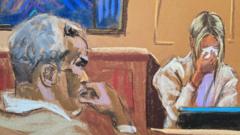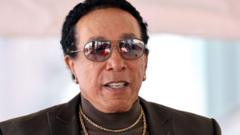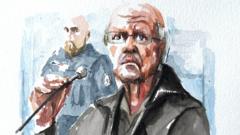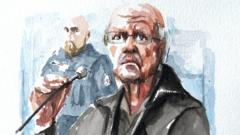Joël Le Scouarnec, a former doctor, was charged with abusing 299 former patients after previously being convicted for child abuse imagery. Despite known risks, oversight mechanisms failed, allowing him to continue practicing as a surgeon.
The Unchecked Predator: The Case of Joël Le Scouarnec and Systemic Failures in French Healthcare

The Unchecked Predator: The Case of Joël Le Scouarnec and Systemic Failures in French Healthcare
The shocking story of how a convicted pedophile managed to evade scrutiny while abusing vulnerable patients highlights significant flaws in the French healthcare system.
Dr. François Simon is a pivotal figure in the ongoing precedent of systemic failure surrounding the case of Joël Le Scouarnec, who was ultimately charged with the sexual assault of 299 former patients, primarily children. This scandal emerges from Le Scouarnec's earlier conviction in 2005 for downloading child sexual abuse materials, a fact that should have warranted his removal from practicing medicine. Yet, throughout the years, he continued his employment as a gastric surgeon, indicating a striking breakdown of accountability within the healthcare system.
Simon, who once oversaw a regulatory board for physicians in Finistère, Brittany, was well aware of Le Scouarnec’s past conviction. Faced with the responsibility of ensuring the safety of patients, Simon opted not to advocate for a disciplinary hearing, instead transmitting the case to the Ministry of Health. His rationale, later expressed in court, hinged on an assumption that the Ministry would address the matter with greater urgency. However, his board’s unanimous decision at the time refuted the idea that Le Scouarnec's actions contradicted medical ethics.
Now, as Simon testifies, he confronts the heavy weight of a system that allowed a dangerous individual to operate unchecked for years. He acknowledges misunderstandings within the bureaucratic framework yet denies any fundamental malfunction within the system. This case raises questions about the efficacy of oversight in healthcare and highlights the potential consequences when protective measures fail.
As public outrage propels ongoing discussions about accountability within medical institutions, Simon reflects on his role, stating, “We tried to do what we could,” yet recognizing a grave error that allowed an abusive physician to slip through the cracks time and again. With Le Scouarnec’s trial drawing attention to these systemic shortcomings, the spotlight is now on healthcare regulations and their capacity to protect the most vulnerable from predatory behavior.




















